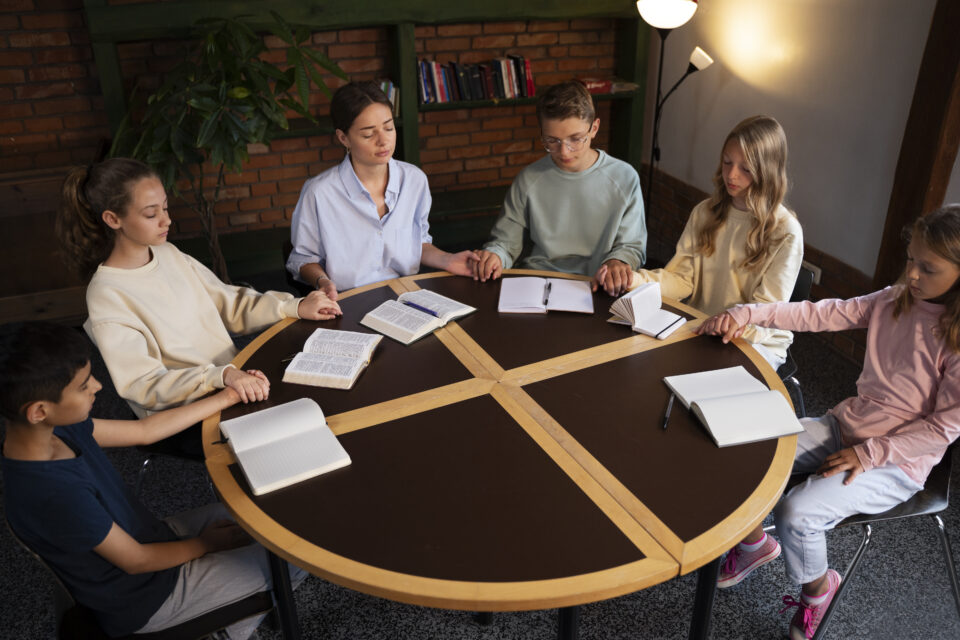3 Tests to Determine Your Company Subject to Sales Tax
Test 1 : Malaysian Customs Department identify manufacturer by looking at their industry codes / MSIC Code. How do you find your MSIC Code? You can check your GST form in the past or Form C (tax return for company)
You can check the MSIC Code at this website: http://msic.stats.gov.my/bi/carianKod.php
You can choose English or Bahasa Malaysia > click MSIC Code and put in your MSIC Code > For example 25910 falls under Section C > click the MSIC code and it tells you that this is manufacturing.
Inland Revenue Board (IRB) and Royal Malaysian Customs Departments (RMCD) identify their audit targets using MSIC code. Imagine industry players are making 20% margin while you only make 5%. That’s where they will step in to check on you. There are often cases where the businesses allocate a wrong MSIC code resulted to audit risk. Therefore using the right MSIC code is very important.
This is just a preliminary assessment. Test 2: is to ascertain whether you genuinely fall into the definition of “Manufacture”. Manufacture defend under s.3 is conversion of organic or inorganic materials by manual or mechanical means into a new product by changing size, shape , composition, nature or qualify of such materials and include the assembly of parts into a piece of machinery or products. This is also includes subcontract work by manufacturer.
Test 3 : whether your taxable sales exceed RM 500,000 based on future or historical method.
- Future method is for new company that do not have any historical sales before. It is taking the current month sales and future 11 months of the company sales.
- Historical method is for company that have sustain more than 12 months. It is taking the current month sales and past 11 months of the company sales.
Taxable Period for Sales Tax
The first taxable period of every taxable person shall commence from the date he should have been registered under s13 of the Sales Tax Act 2018 and ending on the last day of the following month and the subsequent taxable period shall be a period of 2 months ending on the last day of any month of any calendar year.
For example, if my accounting year end is December 2019 and I just registered for sales tax or service tax in July 2019 in which approval was granted in the same month. My first taxable period may only be one month which is August 2019, submit in September 2019. Whereas subsequent taxable periods will be:
- September and October, submit in November 2019
- November and December, submit in January 2020
The taxable period end of the day will coincide with my financial year end. If you wish to have a different taxable period, you can always write in an application for a different taxable period, but that would subject to Director General’s approval.
Sales Tax Mechanism
Issuance of invoice to purchaser
Registered manufacturer is required under the Act to issue invoice (not tax invoice) either in hardcopy or electronically to the purchaser in respect of any transaction relating to the sale of taxable goods.
The invoice must comply with the following requirements:
- Invoice serial number
- Date of invoice
- Name, address and identification number of registered manufacturer
- Name and address of the person to whom the taxable goods is sold
- A sufficient description of taxable goods sold
- Any discount offered
- For each description, distinguish the type of taxable goods, quantity of the taxable goods and the amount payable excluding sales tax
- Total amount payable excluding sales tax, the rate of sales tax and total sales tax chargeable shown as a separate amount
- Total amount payable inclusive of total sales tax chargeable
- Any amount expressed in a currency other than ringgit shall be expressed in Ringgit at the selling rate of exchange prevailing in Malaysia at the time of sale of taxable goods
- National Language or English language. Sorry, mandarin not allowed
The amount of sales tax payable shall be collected by registered manufacturer from the purchaser and remit to Royal Malaysian Customs Department (RMCD).
Issuance of credit note
A registered manufacturer who sells taxable goods can issue a credit note, if there is a deduction to the amount of sales tax payable after the sales tax return for the taxable period has been furnished to the Director General in:
- Goods are returned by the purchase due to wrong quantity, poor or defective quality or uncontracted taxable goods
- Discounts have been given in respect of taxable goods sold
Issuance of debit note
A registered manufacturer can also issue a debit note if there is any additional amount of sales tax payable after sales tax return submitted. Usually it refers to undercharge of invoices.
Information in the Credit Note and Debit Note
A credit note or debit note must contain the following particulars:-
- The word credit note or debit note
- Serial number
- Date of issuance
- Name, address and identification number of the registered manufacturer
- Name and address of the person to whom the taxable goods is sold
- Reason of issuance
- Description, quantity and amount of taxable goods
- Total amount exclude sales tax
- Rate and amount of sales tax; and
- Number and date of issuance of the original invoice
In the event the sales tax adjustment exceeds the actual sales tax payable, the balance will be carried forward to subsequent taxable period until entire amount has been deducted.
Director’s Responsibility under Sales Tax Act 2018
s.34 of Sales Tax Act 2018 stipulates that directors, partners are jointly and severally liable for sales tax, surcharge, penalty, fee or other money payable by the company. This means the sales tax incurred by a registered manufacturer can be recovered from the :
- Directors of the company
- Compliance officers who is appointed as partners of the Limited Liability Partnership (LLP)
- Partners of the firm in regards to partnership
- Office-bearers of the society; or
- Persons responsible for management of the body of persons
In the case where a company is wound up under the Companies Act, the director will still be liable for sales tax, surcharge, penalty, fee or other money payable if the company’s assets are insufficient to settle the amount.
Sales Tax Obligation and Penalties
Preservation of documents
Every registered manufacturer has the duty to keep complete and true records up to date for all transactions which will affect his liability to sales tax. Similar to income tax act, these records shall be preserved for a period of 7 years from the issuance date. Failure to comply with such requirement constitutes an office and liable to a fine not exceeding RM 50,000 or an imprisonment for a term not exceeding 3 years or both
Such records include invoices and receipts, debt notes and credit notes, records on importation and exportation of goods and any other records which RMCD may determine.
Additional records to keep include:
- Sales reports
- Debtor aging listing
- Audited financial statement
- Bank statement
- Contractual agreement and progressive reports
Submission of sales tax
A taxable person shall account for sales tax in Form SST-02 and submit to RMCD not later than the last day of the month following end of his taxable period. For example January and February, submit in March. March and April, submit in May. Vice Versa.
The submission can be done electronically through MySST portal. During the submission, you have to make sure you furnish the particulars which are required such as information of taxable goods, tariff codes, value, value of taxable goods which were withdrawn for own use or disposed and amount of sales tax.
If you have made any mistake in the SST-02 form and wish to make amendment, you can do so before the payment and due date of the submission.
A taxable person who fails to submit tax return or furnishes an incorrect return, commits an offences under s.26(7) of the Sales Tax Act and upon conviction shall be liable to a fine not exceeding RM50,000 or imprisonment for a term not exceeding 3 years or both. Once SST-02 submitted, you are required to submit payment within the same due date.
If the amount of sales tax due and payable is not paid wholly or party by taxable person after the due date, there will be no prosecution but you will be liable to a penalty of:
- 1st 30 days : 10%
- 2nd 30 days : additional 15%
- For the 3rd days : additional 15%
Will subject to a maximum penalty of 40% after expiry of 90 days. Assuming the tax payable is RM 100.
- 1st 30 days = RM 100 + RM 10
- 2nd 30 days = RM 100 + RM 10 + RM 15
- 3rd 30 days = RM 100 + RM 10 + RM 15 + RM 15
Sales Tax Exemption for Registered Manufacturers and Non-Registered Persons
Under Sales Tax (Persons Exempted From Payment of Tax) Order 2018, Schedule A, there are total 71 exemptions which may also available to non registered persons. Some important ones include businesses who deal with government sectors, airlines, oil and gas companies and cross border transactions.
For example, one of the exemption in regards to export of goods under Item 57, Schedule A. This exemption is for any person approved by Director General of RMCD, you can become an approved person by assessing to Mysst.customs.gov.my and get yourself registered.
Under Item 57, Schedule A, as long these goods are locally manufactured goods meant for export, you can apply for an exemption. For example, I am a shoe trader and I acquired my goods from a local manufacturer. The local manufacturer which is a registered manufacturer will charge me sales tax of 10%. This 10% will become my cost, but if I can prove to RMCD that these goods I acquired is for export, I would have a 10% sales tax saving.
The qualifying condition under Item 57, Schedule A:-
- The goods must be acquired from a registered manufacturer (with sales tax)
- The goods are to be exported within 6 months from the date of purchase
- The goods shall not be sold or otherwise disposed of in Malaysia unless sanctioned by RMCD and repayment of appropriate tax.
- The person approved shall pay all the taxes on any goods that cannot be accounted for
- If the goods are not exported within 6 months from the date of purchase, the person approved shall be liable to pay all the taxes on the goods not exported
So I hope you’re now clearer with the planning of your company Sales Tax. If you need assistance, please call us at 011-1217 8183.




